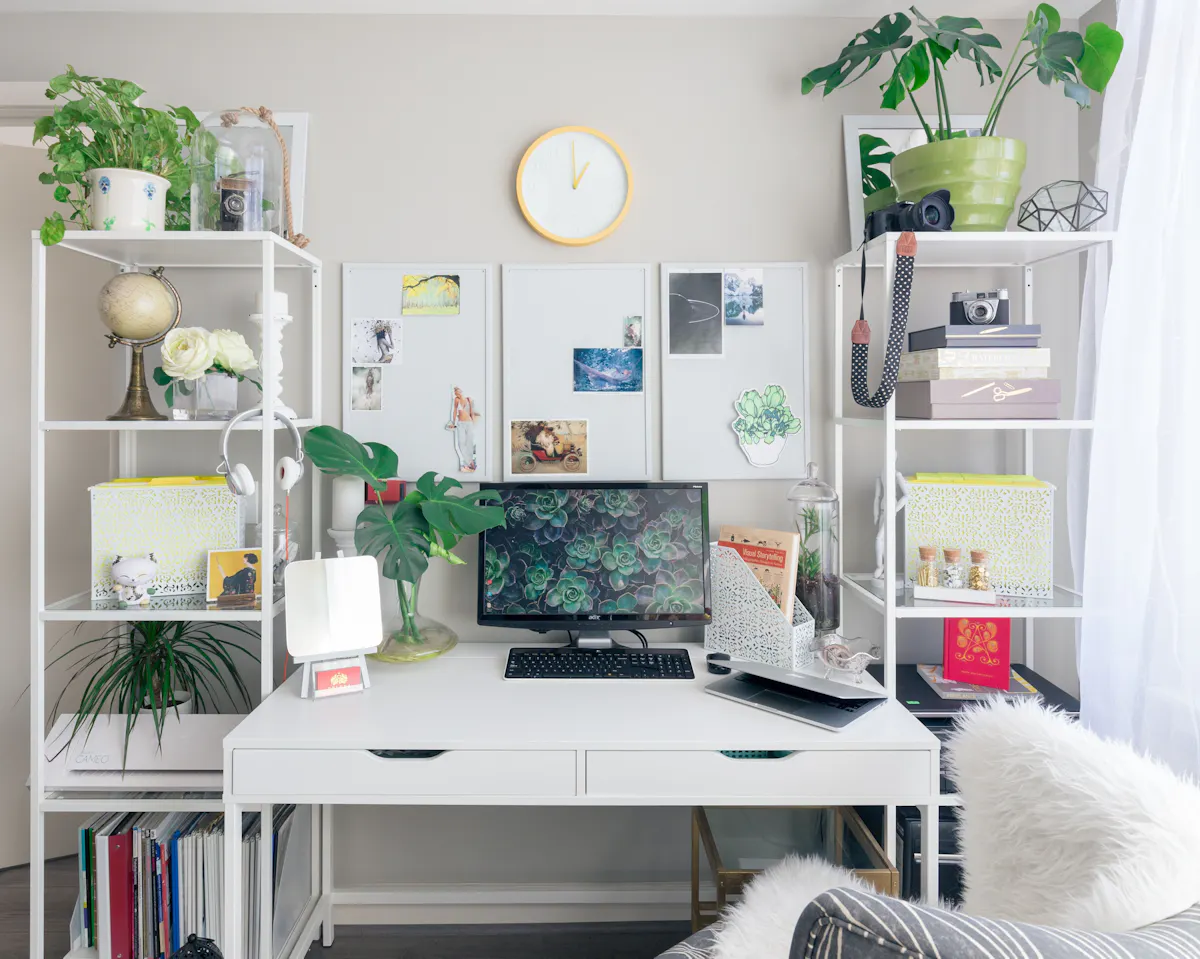Fill out the form to get more information about the WFU bootcamp of your choice.
04.02.2024
6 Tips for Creating an Effective Study Space
By The Fullstack Academy Team

As educators, we know there are many factors that contribute to academic performance, like teaching style, class size, and managing other obligations. While all of these things undoubtedly play an essential role in academic success, one factor students often overlook is their study environment.
With online learning becoming more prevalent, creating the right study environment has become increasingly important. Many students and professionals alike prefer to work from home as it offers more autonomy, but it’s also beneficial to try to mirror some of the structure that comes with a professional space within a personal one for optimal efficiency.
Read on to learn how to create the optimal study environment for your needs.
Make Your Move.
Take the first step in your journey by learning more about the immersive tech bootcamps at Wake Forest University Tech Bootcamps Powered by Fullstack Academy.
Why you need a dedicated study space
Where you study is often just as important as how you study. While it may seem like a good idea to pick a spot at your local coffee shop or get comfy on a couch, but is it where you learn best?
A dedicated study space offers many benefits for learning, including:
Increased motivation
Better retention
Less distraction
However, creating an optimal study environment requires a bit of thought and planning.
Here are a few tips for creating a practical study space.
1. Find a location that works
Finding a location is the first step in creating an effective study space. Choose an area where you can control the noise level and minimize distractions. Avoid high-traffic areas of your home, like near the entryway or kitchen—even if you live alone! That way, you’re not tempted to get up and attend to housework more often than you need to.
From there, make sure the space is big enough to spread out your study materials without feeling cramped. Consider vertical file storage or under-desk materials storage to help make the most of your surface area.
Choose a spot near a window if possible. Natural light has been proven to support concentration, which can lead to higher academic performance. It can even foster the growth of a mood-boosting plant!
2. Make sure you’re comfortable
Comfort is vital to a successful study session—as long as you’re not too comfortable. While your study space shouldn’t want to make you curl up and take a nap, you should be able to sit comfortably for extended periods of time. You don’t want to keep interrupting your study session to move because you’re uncomfortable.
Make sure you have a quality chair and desk that will help maintain proper posture and provide ergonomic support. If you can’t sit for long, try investing in a standing desk or walking pad.
3. Get organized
A clean and organized study space is essential for success. Limit clutter and unnecessary items to only a few things that brighten up your space or provide additional utility (like planners and calendars). Otherwise, too many items can be a distraction. You may also consider investing in desktop organizers to ensure everything has a proper place.
Getting organized isn’t just about your physical study space. Clearly sort and label the documents on your computer or Google Drive so you can easily access them. If you have websites you need to access regularly, make sure you bookmark them. You don’t want to spend the first few minutes of every study session looking for the proper materials.
4. Limit distractions
Minimizing distractions is a must for keeping your focus and maximizing productivity. Keep your study space free of any temptations that distract you from your studies, such as a phone, TV, or gaming console. If you need background noise, use white noise or instrumental music to stay focused.
When studying at home, the biggest distractions are often other people and pets. Before you begin your study session, let others know so they don’t interrupt. If you have kids or pets, try occupying them with an activity while you study.
5. Personalize it
Making your study area your own can help keep you motivated. Decorate your space with inspirational quotes, photos, and achievements to remind you why you’re pursuing your education goals in the first place. Plus, creating a space you enjoy can make studying all the more engaging.
6. Use it only for studying
Now that you’ve created the perfect study space, you may be tempted to use it for other activities. However, if you start using your study space for hobbies like watching TV or gaming, you may create distractions and no longer associate the space with learning.
Make Your Move.
Take the first step in your journey by learning more about the immersive tech bootcamps at Wake Forest University Tech Bootcamps Powered by Fullstack Academy.
An effective study space for success
If you’re taking classes online, creating a dedicated study space can help set you up for success. Remember, a study space doesn’t have to mean a home office—it’s wherever you feel most comfortable and able to focus on your educational journey.
Looking for more tips on how to improve your academic success? Visit our blog for advice on maximizing your potential in and out of the virtual classroom.


